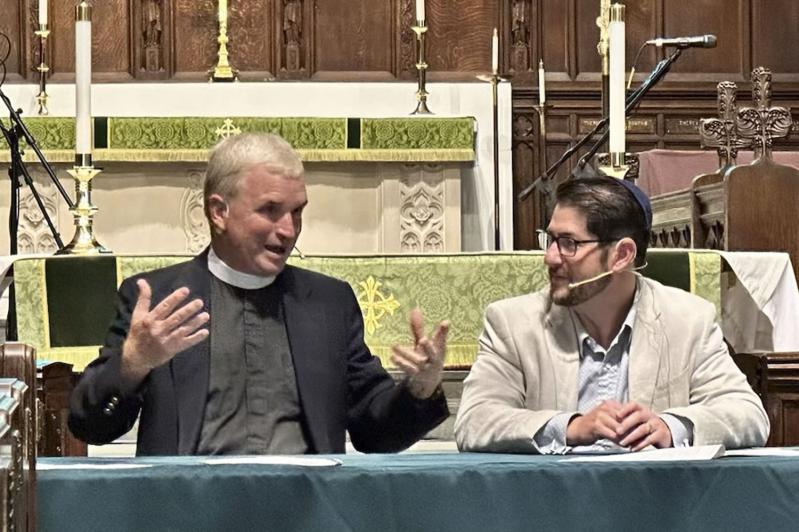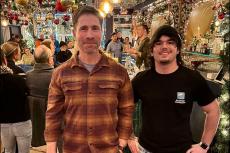Amid a pervading sense of uncertainty — politics and international affairs being what they are — something positive is happening here.
On the morning of July 19, a Friday, there were maybe 40 people waiting in the pews at the Jewish Center of the Hamptons for the Rev. Ben Shambaugh, minister of St. Luke’s Episcopal Church, and Rabbi Josh Franklin, spiritual leader of the center, to begin exchanging their interpretations of “the best parables of Jewish and Christian literature.” The next Friday, on the 26th, the number was over 60, and by last Friday, now having moved to St. Luke’s, it had swelled to 80 or more.
Word of mouth, for sure.
“Just when we think we understand the meaning of a parable, a new layer of spirituality emerges” is the premise on which this four-session interfaith discussion is based. Take, for example, the story of The Prodigal Son. Given his share of his future inheritance, he runs away to a distant land, to “squander his wealth in dissolute living,” as related by Mr. Shambaugh, citing Luke 15:11-312. Having spent it all, and dying of hunger, he begs his father to take him back again, even as “one of his hired hands.”
The father, “filled with compassion,” not only welcomes him, but dresses him in fine clothing and tells the servants to kill the fatted calf in celebration of his return, “for this son of mine was dead and is alive again; he was lost and is found!”
Rabbi Franklin cited Deuteronomy 4:29-30 in discussing the same parable. In this telling, the son warns the father of his intention to depart: He will travel by sea. Don’t do it, says the father; it’s the wrong time of year. There will be storms, and your ship will be wrecked! But, he continues, if that does happen — and it surely will — “You must never be ashamed to return to me, and I will surely receive you.”
What are these stories really about? Both of them, as told in the Old Testament and the New, by the rabbi and the rector, are promises of God’s forgiveness.
As the interfaith sessions continued, the two religious leaders, in friendly dialogue and instructive commentary, have introduced complementary examples from their own traditions — the parable of the Good Samaritan, in particular, occasioning a lively discussion of “Love thy neighbor as thyself.” Pretty quickly, it has become clear to their listeners that forgiveness, compassion, repentance, atonement, and love are the universal themes of both Judaism and Christianity.
The rabbi and the reverend were not, of course, always on the same page, though they sometimes arrived at similar conclusions. During a discussion of Biblical miracles, for instance, Rabbi Franklin commented that Jews have the God-given authority to “step away from miracles and interpret on our own.” The Anglican (Episcopal) Church, on the other hand, has a long tradition of using councils to parse and resolve such thorny questions, said Mr. Shambaugh, citing the first such, the Council of Nicea in 325 A.D., which rejected the doctrine that Christ was a created being and established him as divine.
“How do we read scripture?” Mr. Shambaugh asked, “We use our God-given reason, and balance it with tradition . . . a lot of people don’t like the Episcopal Church because it says, ‘Well, it can be this or that.’ “
“That sounds very Jewish,” Mr. Frankel responded, to laughter. “We don’t look to heaven to expand on laws that have already been given to us.” The world of reason and the spiritual world, they agreed, can both exist, and do.
During a coffee and light-sandwiches reception at St. Luke’s following Friday’s third session, many people, evidently strangers before the dialogues began, were overheard in earnest conversation. “I’d never been in the building before,” said one woman, speaking of the Jewish Center. “Such an uplifting space!”
“Yes,” came the reply, “and your church is beautiful as well. It has been wonderful to connect with this community of faith.”
The fourth and final session of “Jewish and Christian Parables” will be held on Friday, Aug. 16, at St. Luke’s, starting at 11 a.m. The subject is intriguing, and certain to trigger a spirited debate: Original Sin.




